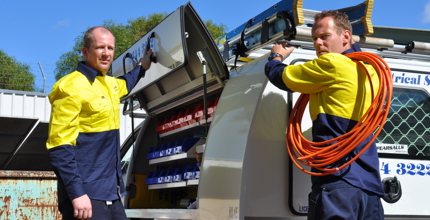Can Normal Electricians Install EV Chargers? A Comprehensive Guide

With the accelerating adoption of electric vehicles (EVs), the demand for home EV chargers is surging. This raises a pertinent question: Can a standard electrician undertake the installation of these chargers, or are special qualifications required?
Can a Normal Electrician Install an EV Charger?
While basic electrical knowledge is fundamental, installing EV chargers involves complexities beyond standard electrical tasks. It requires understanding specific safety protocols, regulations, and standards such as AS/NZS 3000:2018 (AKA the "the wiring rules") in Australia. These standards dictate the technical and safety norms for electrical installations, including EV chargers.
Qualifications and Training
For an electrician to install EV chargers safely and in compliance with national standards, additional training and certification is needed.
We may be biased, but CET's Electric Vehicle Course (offered in partnership with Skillbuild) is a great place to start.
This course offers a thorough overview of EV technology, focusing on various types of EVs, plugs and charging methods. You'll have the opportunity to install, test and commission three different EV charger types, and plug these into an on-site EV.
Understanding EV Charging Requirements
The installation must adhere to the AS/NZS 3000:2018 standards, which include guidelines for EV charging installations. For example, the type of RCD used must be compatible with the charging station's capabilities to detect DC fault currents.
Understanding Different Types of EV Chargers in WA Western Australia is embracing the EV revolution, and understanding the different types of EV chargers available is crucial for efficient installations. There are three main levels of EV chargers: Level 1 chargers offer a basic charging capability using a standard household outlet; Level 2 chargers, which are faster, require a 240V supply; and DC Fast Charging (Level 3), the quickest form, suitable for public charging stations.
In Perth, and Australia more broadly, the Type 2 connector is becoming the standard. This means electricians must familiarise themselves with this connector type and ensure compatibility between the EV models prevalent in Western Australia and the charging infrastructure.
Smart EV Chargers and Connectivity in Perth
Smart EV chargers represent the next step in EV technology, offering features like scheduled charging and monitoring energy usage. In Perth, integrating these chargers with the local electricity grid can enhance energy efficiency. Installation requires internet connectivity and adherence to the requirements of local network providers, such as Western Power, highlighting the need for electricians to understand the nuances of smart technology in EV charging.
Permitting and Legal Requirements in WA
In Western Australia, the permitting process for EV charger installations involves navigating state-specific requirements. Compliance with the National Electrical Code (NEC) and local standards, such as the Western Australian Service and Installation Requirements (WASIR), is mandatory. This ensures that installations are safe and lawful.
Site Assessment and Preparation in Perth
Choosing the optimal location for an EV charger in Perth requires a thorough site assessment. Factors like the local climate and existing infrastructure play a significant role. Electricians must also consider whether the installation will be indoors or outdoors and make necessary weatherproofing preparations specific to Perth's environment.
Installation Safety and Best Practices
Adhering to safety protocols and best practices during installation is paramount. In Western Australia, this means following the guidelines set out in WASIR and WAER standards. Electricians must prioritise safety and compliance throughout the installation process to protect themselves, their clients, and the electrical system.
Future-Proofing EV Charger Installations
With the rapid advancements in EV technology, ensuring that charger installations are future-proof is crucial. This involves preparing for potential upgrades and standard changes, particularly with the adoption of the Type 2 connector as the expected standard in Australia.
Conclusion
As the demand for electric vehicle (EV) charger installations continue to grow, electricians must adapt to the complexities and specificities of this rapidly expanding field. Additional training and certification are essential to ensure safe, compliant, and future-proof installations that meet the relevant standards and local requirements.
Ready to Accelerate Your Career?
Are you ready to take charge of your future in the rapidly growing Electric Vehicle (EV) industry? Don't miss this opportunity to gain a competitive edge and become a certified EV charging expert by enrolling in our Electric Vehicle Charging Course facilitated and certified by Skillbuild Training.



